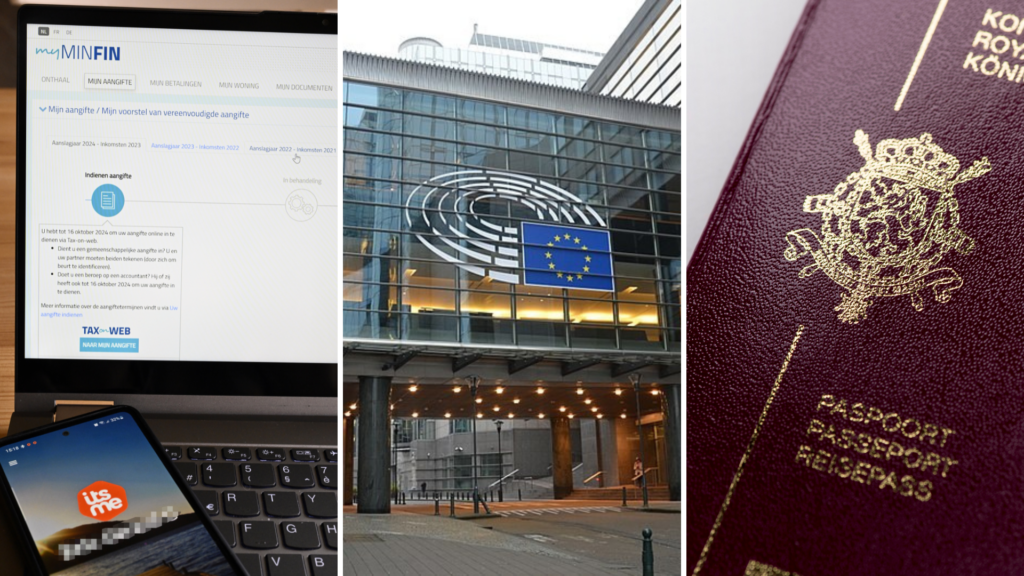Filing taxes is a task that no one looks forward to. But it's a process even more daunting for international residents living in Belgium. To make this a less overwhelming chore, we consult a tax expert to guide us through the key aspects.
The term "expat" covers various groups, explains Eric Laurent, a partner at ERYV law firm who specialises in international income. "From direct employees in the EU institutions or international organisations like NATO to sub-contracted staff, there are different subcategories, all with special tax treatments. Then there are cross-border workers or people on a work assignment," he told The Brussels Times.
The first step is to determine your tax residency, which depends on two factors:
- The domicile: where your private and professional interests are centred. Your tax domicile can be different from your civil domicile;
- The primary location of assets: not where your money is located but from where assets are managed.
The Belgian Income Tax Code states that anyone registered with a Belgian commune is deemed to be a Belgium tax resident. "But this can be reversed by submitting proof to the Belgium tax administration that you are not an inhabitant."
Due to the complexity of this concept, anyone who is unsure about their status is advised to contact a tax adviser.
What to declare
Your tax residency will influence what you must declare. "If you are a Belgian tax resident, you will have to declare your worldwide income to Belgian authorities."
A key section in the tax return forms is dedicated to foreign income, whether this comes from employment or a pension. The total income must be declared both in Belgium and the origin country. Belgian tax residents who have a bank account or savings account abroad must declare the income they gain from the interest on the account. People with a broker account abroad will have to declare the dividends or the interest they receive from the asset.
"Even when you are not generating income and no matter how little the amount on these accounts, you should always declare a foreign bank account," Laurent stressed. The bank account number and country where it is located must be registered with the National Bank of Belgium before filing tax returns. A box on the tax return must be ticked to indicate you have a foreign bank account.

Non-tax residents who let out property in Belgium should declare this income here. Credit: Belga
People with real estate abroad must send a request to Belgian tax authorities in a separate process to determine their cadastral income. This involves providing information about the property location, the purchase date and the price. The tax return includes a section for real estate abroad.
Those with an irregular income should always double-check the proposal of simplified declaration sent by the government. "When it comes to expats, there are several elements the Belgian State may not be aware of when sending the simplified declaration. This means the proposal is often incorrect."
Expats should therefore make sure the proposal is accurate as Belgian authorities will likely receive more precise data at a later time through the Common Reporting System (CRS). This allows them to check if people declared their foreign income correctly. Disparities could lead to penalties.
Avoiding double taxation
Declaring worldwide income does not necessarily mean it will be taxed. Many countries have signed treaties to avoid double taxation on the same income source.
In some cases, the tax paid in the country of employment is deducted from the tax due in the country of residence. In others, income earned in the country of employment is only taxed there, exempting the person from tax in their country of residence.
Foreign pensions are more complex: "It is up to the taxpayer to define whether the pension is taxable in the source country or in Belgium." This can be checked in the tax treaty between Belgium and the country paying the pension. "In most cases, the pension is taxable in the source country and should be exempt from income tax in Belgium. But it still needs to be declared to determine an average rate of taxation for the other taxable items in Belgium."
Establishing the tax residency status officially is key to avoiding double taxation. Belgian tax residents who earned an income in a country with which Belgium has a double tax treaty are advised to request a tax residence certificate, certifying that their tax residency is here. This can then be passed on to the authorities of the foreign country.
Exemptions and anomalies
Civil servants working for the EU (and who have no other source of income in Belgium) are exempt from paying taxes on their income and declaring their assets here. Instead, they are a tax resident of the EU state where they were hired by the EU institution. People in this position who own real estate in Belgium that they are renting must declare this source of income.
Non-civil servants working for the institutions are usually regarded as Belgian tax residents. Trainees working for these organisations are normally taxed in Belgium, but this depends on their tax residency status. "If a trainee is only working here for six months, they should not be considered a Belgian tax resident, even if they are registered with a Belgian commune."
Those on a working assignment abroad in Belgium – for example, a Spanish person working for the Belgian branch of the Spanish parent company – are most likely also considered to be Belgian tax residents. There are some exemptions, for example: if they have a family that remains in Spain and the person continues to manage their finances from abroad.
Similarly, commuters who live outside Belgium but travel to the country several days a week to work would not be considered Belgian tax residents. This is more complex for cross-border or frontier workers. People living in Belgium but working in the Netherlands, France, Germany or Luxembourg have to file their taxes in both countries, declaring their worldwide income to Belgian authorities and their income in the country where they work.
People who are married or legally cohabiting share a tax residence, in the country where their household is located. Spouses are either both tax residents of Belgium or not.
This is not always the case for the official partner of a civil servant. When the person has no income, they will follow the taxation regime of the civil servant. "But if the partner has a Belgium-source income, they will have to file a tax return here."
Related News
- Belgium remains champion for highest tax burden despite small drop
- Filing taxes online possible from 24 April: What to know
Some people may own properties in Belgium and in another country and earn an income in two countries, in which case the so-called "tie-breaker rule" applies. In such a case, several factors might determine the tax residency, but sometimes the tax authorities of each country must confer to decide on the person's tax residency.
For most people, the deadline for filing their tax return is 30 June (paper) or 15 July (via Tax-on-Web). The 16 October deadline, which applies to self-employed people, is also for those with foreign incomes. Finally, for people with a split payroll or non-residents filing taxes in Belgium, the deadline is 22 November.
Those with specific questions about their tax status or what to declare can register for the free Expat Welcome Desk webinar about tax returns on 11 June by contacting inscriptions@commissioner.brussels.

